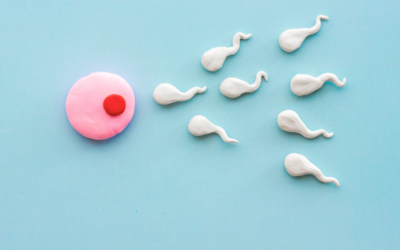Welcome to Week 14 of pregnancy—hello, second trimester! You’ve officially moved past the early weeks of morning sickness and constant fatigue, and now you’re stepping into what many parents call the “golden period.” Your energy is likely returning, your baby bump may be starting to show, and your little one is growing at an incredible pace.
This is the perfect time to pause, breathe, and celebrate how far you’ve come while looking forward to feeling those first tiny flutters, enjoying more stable moods, and focusing on gentle exercise and nourishing meals. In this guide, you’ll discover everything you need to know about Week 14 of pregnancy—from your baby’s exciting developments to common symptoms, self-care tips, and nutrition advice to help you thrive.
Table of Contents
Baby Development at Week 14 of Pregnancy
Your baby is making big leaps in growth and skills:
- Size and Weight: About the size of a peach—roughly 8.5–9 cm (3.5 inches) long and weighing around 40–45 grams.
- Fine Hair: A soft, downy layer called lanugo begins to cover the body, helping regulate temperature.
- Facial Expressions: Tiny facial muscles can now form frowns, squints, and smiles.
- Neck and Body Shape: The neck lengthens, allowing the chin to lift from the chest so the body looks more proportional.
- Organ Action: The liver starts making bile, the spleen helps create red blood cells, and the thyroid begins to function.
- Movements: Your baby can wiggle toes and even suck a thumb. Most moms still won’t feel movement for a few more weeks.

Common Symptoms at Week 14 of Pregnancy
Every pregnancy is different, but many moms notice these positive changes:
- Energy Boost: Fatigue often eases, giving you a welcome lift.
- Brighter Mood: Hormonal ups and downs level out, leaving you feeling more balanced.
- Appetite Surge: With nausea fading, hunger increases—time for healthy snacks and balanced meals.
- Round Ligament Pain: Mild pulling or stretching in your lower abdomen is normal as your uterus expands.
- Nasal Congestion: Increased blood flow can cause stuffiness or mild nosebleeds.
- Visible Bump: Your belly may be rounding out as the uterus rises above the pelvis.
Nutrition Tips for Week 14 of Pregnancy
Your baby’s rapid growth means good nutrition matters more than ever:
- Lean Protein: Chicken, fish (low-mercury), eggs, beans, and lentils help build tissues.
- Calcium & Vitamin D: Support bone development with dairy, fortified plant milks, almonds, and leafy greens.
- Iron & Folic Acid: Continue prenatal vitamins and enjoy foods like spinach, citrus, and fortified cereals.
- Healthy Fats: Avocado, nuts, and olive oil provide brain-boosting omega-3s.
- Hydration: Aim for 8–12 cups (about 2–3 liters) of fluids daily.

Exercise and Movement
Most healthcare providers encourage gentle activity during Week 14 of pregnancy:
- Walking: Keeps your body strong and your mind relaxed.
- Swimming: Supports joints and provides a full-body workout.
- Prenatal Yoga or Pilates: Improves flexibility and posture while easing stress.
Always check with your provider before starting or changing an exercise routine.
Emotional Well-Being
Hormonal balance often means a brighter mood, but it’s still normal to feel occasional swings:
- Stay Connected: Talk openly with your partner, friends, or a support group.
- Practice Mindfulness: Simple breathing exercises or meditation can help you stay grounded.
- Plan Happy Moments: Start a pregnancy journal or plan a small “second-trimester celebration.”
Prenatal Care Checklist for Week 14 of Pregnancy
- Schedule Your Next Prenatal Visit – Your provider will check weight, blood pressure, and baby’s heartbeat.
- Consider Screening Tests – Mid-trimester genetic or anatomy screenings are often discussed now.
- Review Travel Plans – Ask your provider if you’re planning trips in the coming months.
- Start Thinking About Maternity Clothes – Comfort counts as your bump grows.
Self-Care Tips for Week 14 of Pregnancy
- Prioritize Sleep: Aim for 7–9 hours. Use pillows to support your belly and back.
- Pamper Your Skin: Moisturize daily to soothe itching and help with stretch marks.
- Eat Balanced Snacks: Keep nuts, yogurt, and fruit on hand to manage sudden hunger.
- Stay Active: Gentle movement helps with energy and mood.
What Are the Signs of a Healthy Pregnancy at 14 Weeks?
At Week 14 of pregnancy, many moms-to-be feel reassured as the second trimester begins and symptoms settle down. Signs of a healthy pregnancy at this stage often include:
- Steady Baby Growth – Your little one is now about the size of a peach, and your healthcare provider should confirm healthy development during checkups.
- Stable or Rising Energy – As hormones balance out, you may notice less fatigue and more energy compared to the first trimester.
- Mild, Manageable Symptoms – Round ligament pain, nasal congestion, or breast tenderness are normal signs your body is adjusting to the baby’s growth.
- Visible Bump – For many, the uterus is now high enough above the pelvis to create the beginnings of a baby bump.
- Healthy Weight Gain – A gradual increase, usually around a pound per week from this stage onward, supports the baby’s growth.
- Normal Checkups – Hearing your baby’s heartbeat, measuring uterine growth, and reassuring blood work or screenings are all strong indicators.
Remember, every pregnancy looks a little different. Some moms still feel tired or occasionally nauseous, while others feel a big energy boost. The most important sign of a healthy pregnancy at 14 weeks is that your baby’s growth and your own health markers—like blood pressure and lab results—are on track at prenatal visits.
Is 14 Weeks Pregnant Considered 4 Months?
Yes—14 weeks pregnant is generally considered 4 months along. Pregnancy is typically about 40 weeks, but those weeks don’t divide neatly into calendar months. Healthcare providers count pregnancy from the first day of your last menstrual period, so you reach the start of month four somewhere between weeks 13 and 16. That means at Week 14 of pregnancy, you’re in the early part of your fourth month and firmly into the second trimester.
Because weeks and months don’t match perfectly, it’s common to feel confused. Doctors and midwives use weeks for accuracy since every month has a different number of days. So while you might say you’re “four months pregnant,” your provider will still track your progress week by week. At this point, you have roughly 26 weeks—about six months—left before your due date.
What Should I Avoid During the 14th Week of Pregnancy?
Even though the second trimester often feels easier, there are still a few important precautions to keep you and your baby safe during Week 14 of pregnancy:
- Alcohol and Smoking
Avoid all alcohol and tobacco products. Both can affect your baby’s growth and increase the risk of complications. - Certain Foods
Skip high-mercury fish (like shark, swordfish, king mackerel), raw or undercooked seafood and meats, unpasteurized dairy, and deli meats unless heated until steaming. These can carry bacteria or toxins harmful to pregnancy. - Excess Caffeine
Limit coffee, tea, and energy drinks to no more than about 200 mg of caffeine per day (roughly one 12-oz cup of coffee). - High-Impact or Risky Activities
Avoid contact sports, heavy lifting, and anything with a high risk of falling—such as horseback riding or skiing. - Certain Medications and Herbal Supplements
Only take medicines approved by your healthcare provider. Some over-the-counter pain relievers and herbal teas can be unsafe. - Hot Tubs and Saunas
High temperatures can raise your core body temperature, which may be risky for your baby. - Exposure to Harmful Chemicals
Steer clear of strong cleaning agents, paint fumes, or pesticides whenever possible.
By staying mindful of these areas and checking with your doctor before making changes to diet, exercise, or medication, you’ll help keep your Week 14 of pregnancy as healthy and comfortable as possible.
Is It OK to Sleep on My Stomach at 14 Weeks?
At Week 14 of pregnancy, it’s generally still safe to sleep on your stomach if that position feels comfortable. Your uterus is just starting to rise above the pelvic bone, and your baby is well cushioned by amniotic fluid and the muscular walls of your uterus. Many expectant parents find that stomach-sleeping naturally becomes less comfortable as their bump grows over the next few weeks.
This is a good time to start practicing side-sleeping, especially on your left side, which promotes the best blood flow to your baby and can reduce pressure on your back and major blood vessels as pregnancy progresses. Using a small pillow between your knees or hugging a body pillow can help you stay in this position through the night.
By the late second or early third trimester, lying on your stomach will likely feel awkward or impossible. If you wake up and find you’ve rolled onto your stomach or back, don’t worry—just shift to your side when you notice.

How Should Your Belly Feel at 14 Weeks Pregnant?
By Week 14 of pregnancy, your belly is beginning to rise above the pelvic bone, so it may feel slightly firmer than it did in the first trimester. Many parents notice a small, rounded bump that’s soft on the surface but gently taut underneath as the uterus expands.
It’s also normal to feel stretching or mild pulling sensations, known as round ligament pain, on the sides of your lower abdomen. These twinges occur as ligaments stretch to support your growing uterus and are usually brief and harmless.
Your belly might still feel mostly soft when you press lightly, especially if this is your first pregnancy or if you have strong abdominal muscles. The firmness will gradually increase over the coming weeks as the uterus continues to grow.
Everyone shows differently, so don’t worry if your bump is bigger, smaller, or firmer than someone else’s at the same stage. As long as your prenatal checkups show steady baby growth and your healthcare provider is happy with your measurements, your belly is right where it needs to be.
If you experience sharp pain, severe cramping, or bleeding, call your doctor right away to rule out any complications.
How Active Is a 14-Week Fetus?
By Week 14 of pregnancy, your baby is surprisingly busy—even if you can’t feel it yet. At this stage your little one is about the size of a peach and has enough muscle tone to make a wide range of movements. Ultrasounds often show a 14-week fetus kicking, stretching, wiggling fingers and toes, and even sucking a thumb. The baby can also turn the head, bend the arms and legs, and practice swallowing amniotic fluid, which helps the digestive system develop.
Although these movements are frequent, they’re still too gentle for most first-time moms to notice. The uterus provides plenty of cushioning, so those tiny kicks usually won’t be felt until around 18–20 weeks (sometimes a bit earlier for people who’ve been pregnant before).
All of this activity is a healthy sign of development. Constant movement helps strengthen muscles and joints, stimulates the nervous system, and prepares your baby for more coordinated motions in the weeks ahead.
During your next prenatal visit, your provider may let you listen to the heartbeat with a Doppler or show you the baby in action on an ultrasound—an exciting glimpse of just how lively your Week 14 of pregnancy really is.
How Much Weight Do You Gain at 14 Weeks Pregnant?
By Week 14 of pregnancy, most parents have gained about 1–5 pounds (0.5–2.5 kg) total since the start of pregnancy, though the exact amount varies widely. In the first trimester, many people gain very little—some even lose a bit due to morning sickness—so don’t worry if your scale shows only a small increase so far.
As you enter the second trimester, your provider may recommend gaining around 1 pound (about 0.5 kg) per week. This steady pace supports your baby’s rapid growth and helps your body build the blood volume, placenta, and fat stores needed for a healthy pregnancy.
Factors like your pre-pregnancy weight, metabolism, and appetite all play a role. Someone who started pregnancy underweight might need to gain slightly more, while those who were overweight may be advised to gain less. Your healthcare provider will give personalized targets based on your health and the baby’s growth.
Rather than focusing on the numbers alone, aim for balanced meals—lean proteins, whole grains, colorful fruits and vegetables, healthy fats—and stay hydrated with plenty of water. Regular prenatal visits are the best way to ensure your weight gain and your baby’s development stay on track during Week 14 of pregnancy and beyond.
Why Do I Feel So Heavy at 14 Weeks Pregnant?
Feeling heavier around Week 14 of pregnancy is very common and usually nothing to worry about. As you enter the second trimester, several changes contribute to that “heavy” sensation:
- Growing Uterus and Baby
Your uterus is expanding upward and outward to accommodate a baby now about the size of a peach. That extra weight naturally creates a sense of fullness in your lower belly. - Increased Blood Volume
Your body is producing more blood and fluids to nourish the placenta and support your baby’s growth, adding several extra pounds overall. - Early Weight Gain
By this point, most people have gained anywhere from 1 to 5 pounds and will start gaining roughly a pound per week. Even small changes can feel significant. - Digestive Changes
Slower digestion due to pregnancy hormones can lead to bloating and mild constipation, which can make you feel heavier than the scale shows. - Round Ligament Stretching
The ligaments supporting your uterus stretch, causing mild pulling or pressure that can add to the sense of heaviness.
Wearing supportive maternity leggings, staying active with gentle walks, and drinking plenty of water can ease discomfort. If the heaviness is accompanied by sharp pain, swelling, or sudden weight gain, contact your healthcare provider to rule out complications.
Can I Sleep on My Back at 14 Weeks Pregnant?
At Week 14 of pregnancy, it’s usually still safe to sleep on your back if that’s the position you find most comfortable. Your uterus is just starting to rise above the pelvic bone, so it isn’t heavy enough yet to put significant pressure on the large vein (the inferior vena cava) that carries blood back to your heart.
That said, many healthcare providers recommend beginning to practice side-sleeping now, especially on your left side, which promotes the best circulation for you and your baby. Training yourself early makes the transition easier later in pregnancy, when back-sleeping can reduce blood flow and cause dizziness, backaches, or swelling.
Tips for an easier switch:
- Use a small pillow behind your back or between your knees to stay on your side.
- Try a body pillow for extra support as your bump grows.
- If you wake up on your back, don’t worry—simply roll onto your side when you notice.
So while sleeping on your back at 14 weeks isn’t harmful, getting comfortable with left-side sleeping now can help you rest more soundly and keep circulation strong as your pregnancy progresses.
Final Thoughts on Week 14 of Pregnancy
Reaching Week 14 of pregnancy is an exciting milestone. You’ve officially entered the second trimester, often considered the “golden period” of pregnancy, with more energy, a gradually visible baby bump, and a growing, active little one inside you. Your baby is practicing movements, developing vital organs, and starting to show tiny facial expressions, while your body continues to adjust to support this incredible growth.
This is the perfect time to focus on balanced nutrition, gentle exercise, and self-care. Listen to your body, stay hydrated, and enjoy the moments of connection with your baby—like the first glimpses on ultrasound or feeling early flutters in the weeks ahead.
Every pregnancy is unique, so some symptoms may linger while others fade, but the key signs of a healthy Week 14 of pregnancy include steady growth, manageable discomforts, and regular prenatal checkups. Celebrate this stage, keep up with healthy habits, and look forward to the months ahead as your baby continues to thrive and your journey becomes even more exciting.







